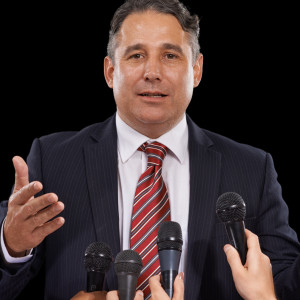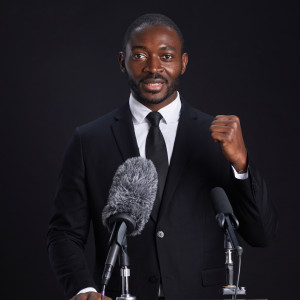Find out department and location based lawyers near your area
Reclaiming Liberty for the Captives: Those subjected to systemic injustice or oppression. Raising the warriors of justice to uphold rule of law. Empowering change-makers to drive systemic change.
Aligned with God’s purpose, we aim to awaken rulers' hearts, remove false idols that blind them, and restore a just world where humanity thrives.
Empower lawyers in U.S.-style litigation and negotiation techniques to attract and manage foreign investments. International Exchange Programs. Leadership Devel. for Change-Makers. Human Rights Litigators. Capacity Building for Justice Professionals.
Our approach is centered on collaboration, innovation, and impact. We work tirelessly to restore human dignity by championing justice, empowering transformative leaders, and fostering systemic change.
Empowering individuals and institutions through capacity building and transformative leadership development, fostering the establishment of rule of law, democratic governance, and human rights-centered institutions.
Lawyers at Orpe Human Rights Advocates are committed to supporting individuals and communities in their pursuit of justice. Their availability depends on various factors, including location, case complexity, and the specific programs being implemented. Here’s an overview:
Office Hours by Region
Appointment-Based Services
Priority for Urgent Cases
Workshops and Training Sessions
Virtual Support Options
We serve a broad range of clients, united by their need for justice, empowerment, and systemic change:
To register in our system and access the services, follow these simple steps:
Visit Our Website: Go to our official website and locate the registration section. You can find it on the homepage or under the "Get Involved" or "Sign Up" tab.
Provide Relevant Documents (if applicable): Depending on the services you are interested in, you may need to upload supporting documents, such as identification, professional credentials, or case details.
Submit Your Registration: You will receive a confirmation email with further instructions.
Wait for Confirmation: Our team will review your registration and get in touch with you to confirm your enrollment and provide you with additional information about accessing services or participating in programs.
If you have any questions or need assistance, feel free to contact us through the website or reach out directly to our support team. We are here to help!
Our approach is centered on collaboration, innovation, and impact. We work tirelessly to restore human dignity by championing justice, empowering transformative leaders, and fostering systemic change.
Our departments are purpose-driven and designed to work collaboratively toward restoring human dignity, promoting justice, and fostering systemic change. Each department plays a vital role in achieving our mission by addressing distinct aspects of human rights, legal empowerment, and community transformation.
Each department is interconnected, working in harmony to create a holistic approach to justice, equality, and empowerment. Together, we transform lives and build a foundation for a brighter, more equitable future.
Our members are the backbone of our mission to restore human dignity and promote justice for all. They come from diverse backgrounds, united by a shared commitment to creating a world where human rights are respected and upheld. Our members include individuals, professionals, organizations, and institutions who contribute their time, expertise, and resources to advance our goals.
Human Rights Advocates: Individuals passionate about defending and promoting human rights, working on the front lines to ensure that every person’s dignity is recognized and upheld. These include legal professionals, human rights defenders, and community leaders who advocate for justice at all levels.
Legal Professionals: Lawyers, paralegals, and legal experts who dedicate their skills and knowledge to support those affected by human rights violations, offering legal counsel, representation, and advocacy to restore justice.
Community Leaders and Change-Makers: Empowered individuals and leaders who are committed to making a difference in their communities. They work alongside Orpe Human Rights Advocates to drive social change, promote equality, and improve the lives of marginalized populations.
Partner Organizations: NGOs, advocacy groups, and civil society organizations that collaborate with us to address global human rights issues, share knowledge, and implement programs aimed at strengthening the rule of law and enhancing human rights protections.
Supporters and Donors: Compassionate individuals, foundations, and institutions who support our work through donations, resources, and partnerships. Their generosity enables us to expand our reach and impact, empowering us to provide services and advocate for change on a larger scale.
Together, our members form a dedicated network of individuals and organizations united by the belief that the protection and promotion of human rights is essential for creating a more just and equitable world. Through collaboration, commitment, and collective action, we work toward a future where dignity and justice prevail for all.
We provide a range of services designed to empower individuals and communities in their pursuit of justice and human dignity.
We advocate for the protection and promotion of human rights on a global scale, often working on issues that transcend national borders. Their primary role is to ensure that individuals and communities are treated with dignity and respect, and that their fundamental rights are upheld according to international legal standards.
Learn More →Lawyers in international civil litigation handle legal disputes that cross national borders, involving individuals, businesses, or governments. Their primary role is to navigate complex legal frameworks, reconcile differences in laws across jurisdictions, and ensure their clients' interests are protected in international courts or arbitration forums.
Learn More →Empowering African Trial Lawyers with U.S.-Style Civil Litigation Skills: A Path to Increased Foreign Investment, Promoting the Rule of Law, and Creating a More Stable, Predictable, and Secure Legal Environment.
Learn More →OHRA is a community-based organization that provides holistic resettlement and family reunification services to immigrants, refugees, and displaced individuals. By addressing critical needs such as housing, legal assistance, cultural integration, and family support, Orpe seeks to empower individuals and promote stable, inclusive communities.
Learn More →Our departments are purpose-driven and designed to work collaboratively toward restoring human dignity, promoting justice, and fostering systemic change. Each department plays a vital role in achieving our mission by addressing distinct aspects of human rights, legal empowerment, and community transformation.
Leaders of Action: Whether championing reforms, empowering communities, or driving innovative solutions, our members lead with integrity, compassion, and a focus on meaningful change. Collaborators and Supporters: Together, we form a network of changemakers, working hand-in-hand to create opportunities, inspire hope, and build pathways to justice for all. At Orpe Human Rights Advocates, our members are not just participants—they are partners in a transformative journey. Their dedication, expertise, and resilience are what make our mission possible and our vision attainable.
Orpe Human Rights Advocates stands at the forefront of global efforts to advance the rule of law. Their capacity-building initiatives not only educate but inspire leaders to drive meaningful change. Their work in transformative leadership development is creating a ripple effect of positive change in justice systems across the world." — Professor Eleanor Wright, Director, Global Rule of Law Institute

The impact of Orpe Human Rights Advocates on rule of law capacity building and leadership development is profound. They consistently deliver innovative solutions to the world’s most pressing human rights challenges. Their programs inspire transformative leaders to rise to the occasion and fight for justice and equity." — James Lee, Executive Director, Global Alliance for Justice and Democracy

"Orpe Human Rights Advocates has been a trailblazer in promoting the rule of law and building capacity in regions where it is most needed. Their commitment to transformative leadership development empowers communities and strengthens democratic governance. Their innovative approach has set a benchmark for human rights advocacy worldwide." — Dr. Maria Sanchez, Special Rapporteur, United Nations Human Rights Council

Through its dedication to strengthening the rule of law, Orpe Human Rights Advocates has been instrumental in fostering peace and stability in our region. Their leadership programs have equipped a new generation of leaders with the tools to champion justice and equality. Their work is a testament to the power of collaboration and vision. Ambassador Peter Okon, Commissioner for Political Affairs, African Union

Orpe Human Rights Advocates stands at the forefront of global efforts to advance the rule of law. Their capacity-building initiatives not only educate but inspire leaders to drive meaningful change. Their work in transformative leadership development is creating a ripple effect of positive change in justice systems across the world." — Professor Eleanor Wright, Director, Global Rule of Law Institute

The impact of Orpe Human Rights Advocates on rule of law capacity building and leadership development is profound. They consistently deliver innovative solutions to the world’s most pressing human rights challenges. Their programs inspire transformative leaders to rise to the occasion and fight for justice and equity." — James Lee, Executive Director, Global Alliance for Justice and Democracy

"Orpe Human Rights Advocates has been a trailblazer in promoting the rule of law and building capacity in regions where it is most needed. Their commitment to transformative leadership development empowers communities and strengthens democratic governance. Their innovative approach has set a benchmark for human rights advocacy worldwide." — Dr. Maria Sanchez, Special Rapporteur, United Nations Human Rights Council

Through its dedication to strengthening the rule of law, Orpe Human Rights Advocates has been instrumental in fostering peace and stability in our region. Their leadership programs have equipped a new generation of leaders with the tools to champion justice and equality. Their work is a testament to the power of collaboration and vision. Ambassador Peter Okon, Commissioner for Political Affairs, African Union

Our lawyers are not just legal experts; they are champions of justice and equality, standing firm in the belief that every individual deserves dignity, respect, and access to fair treatment under the law. Through their dedication and tireless efforts, they help advance our mission of restoring human dignity and empowering communities around the world.
Stay connected and informed! By subscribing to Orpe Advocates, you'll receive the latest updates, news, and insights on our ongoing efforts to defend justice, promote human dignity, and empower communities. Be part of our mission for change. Subscribe today and never miss an important update!
advocacy@orpe.org
+1.202.972.50.30
1802 Vernon Street, NW, Washington DC, 20009, United States
Orpe Human Rights Advocates is committed to defending justice, promoting the rule of law, and restoring human dignity. Together, we empower communities and advocate for a more equitable and compassionate world.
Learn More →
We use cookies to personalize content and ads, to provide social media features and to analyze our traffic. We also share information about your use of our site with our social media, advertising and analytics partners who may combine it with other information that you’ve provided to them or that they’ve collected from your use of their services.